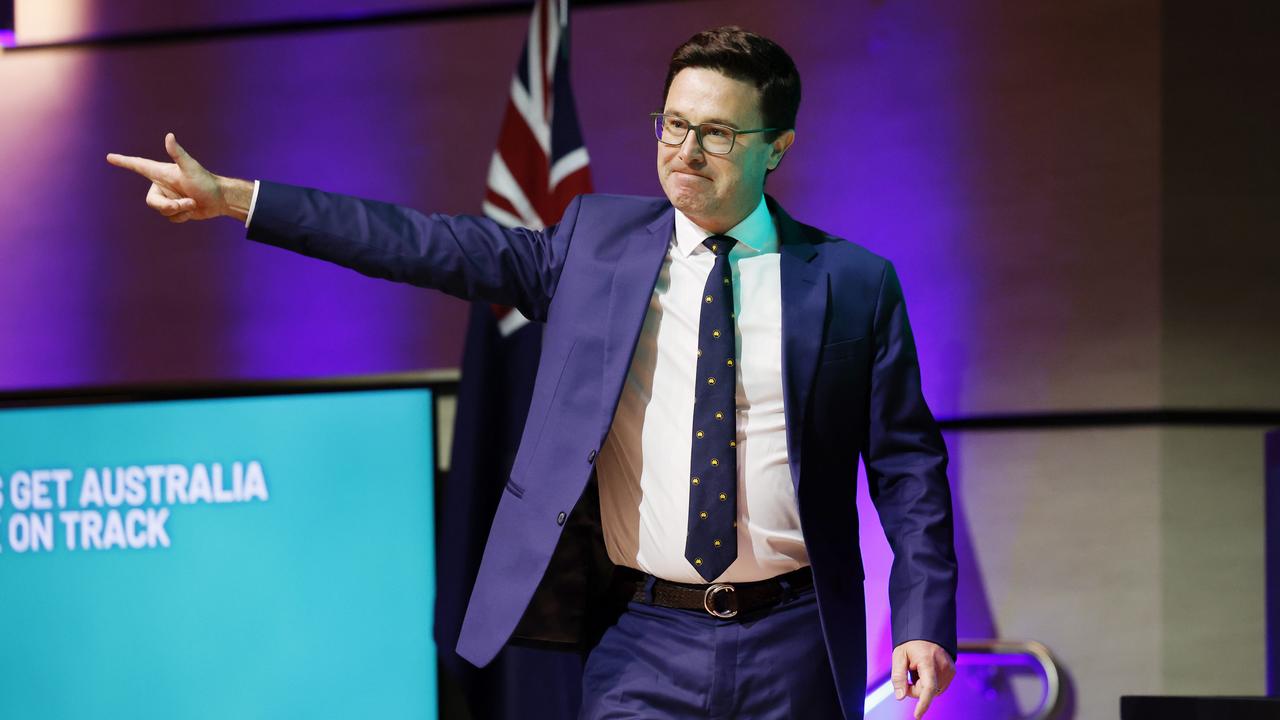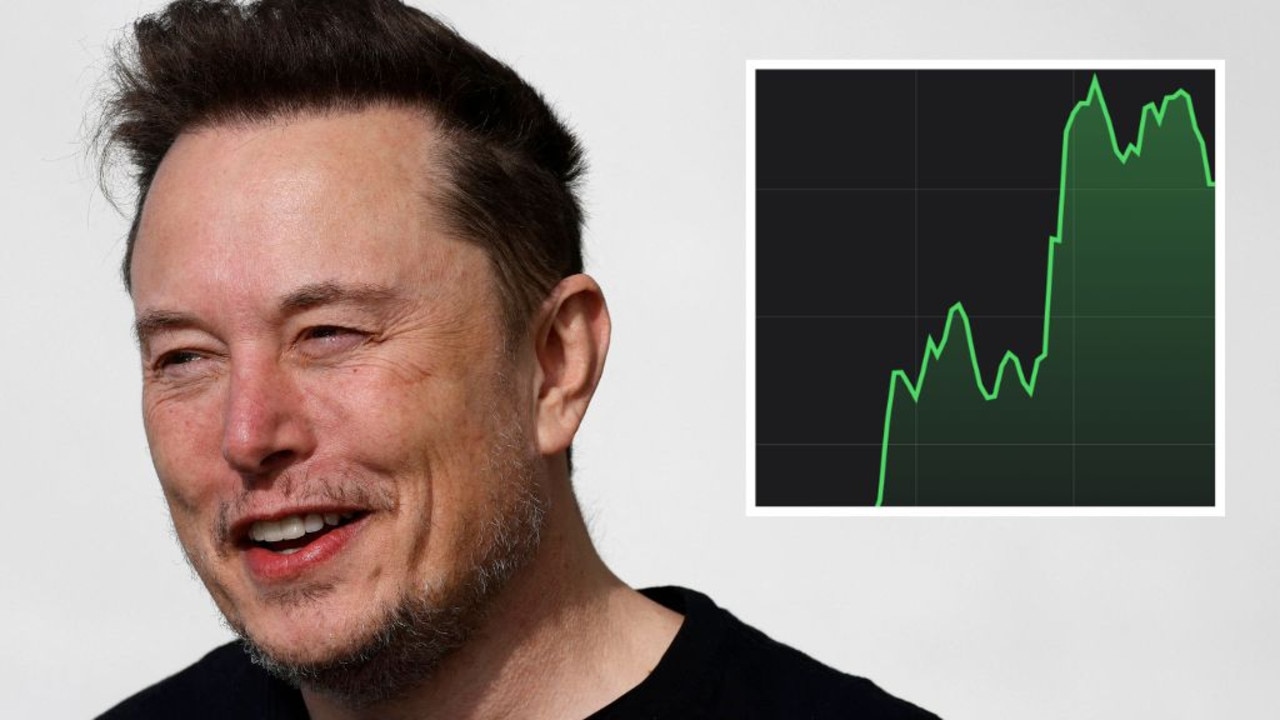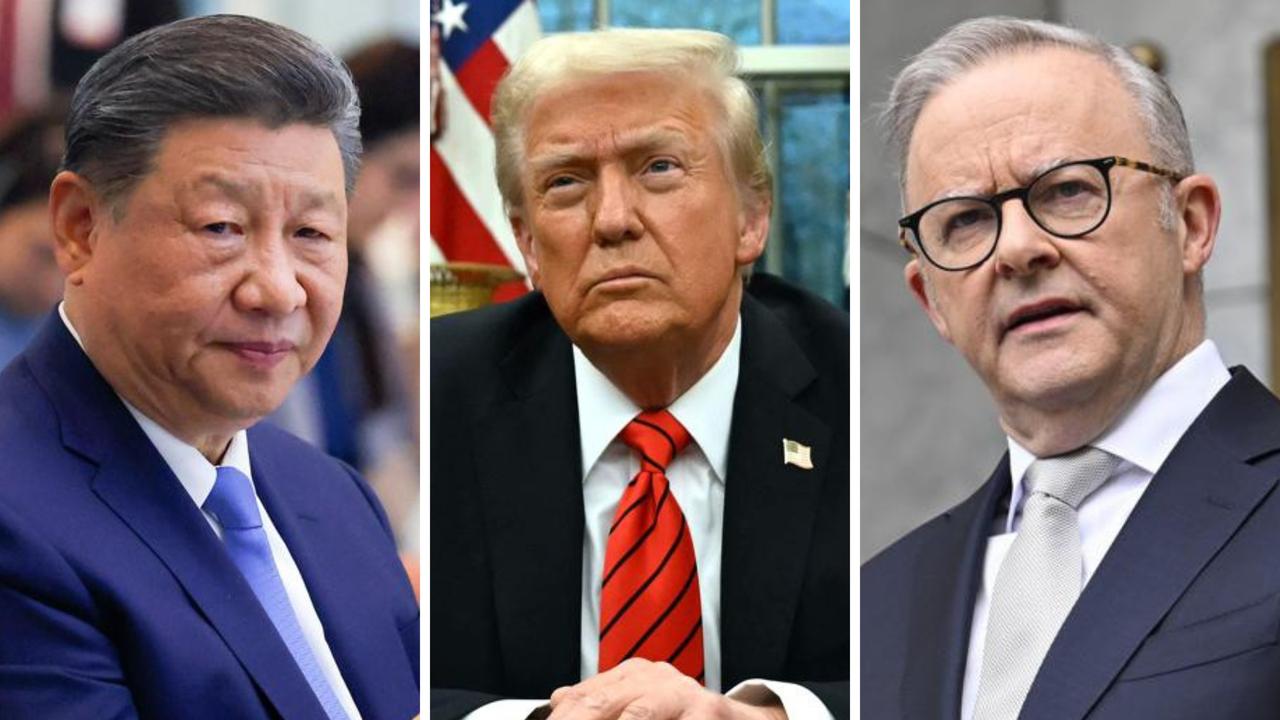Australians reveal who they actually want to be the next prime minister
A new survey has revealed what Australians are really thinking just weeks out from the election - and there is a very clear favourite to win.
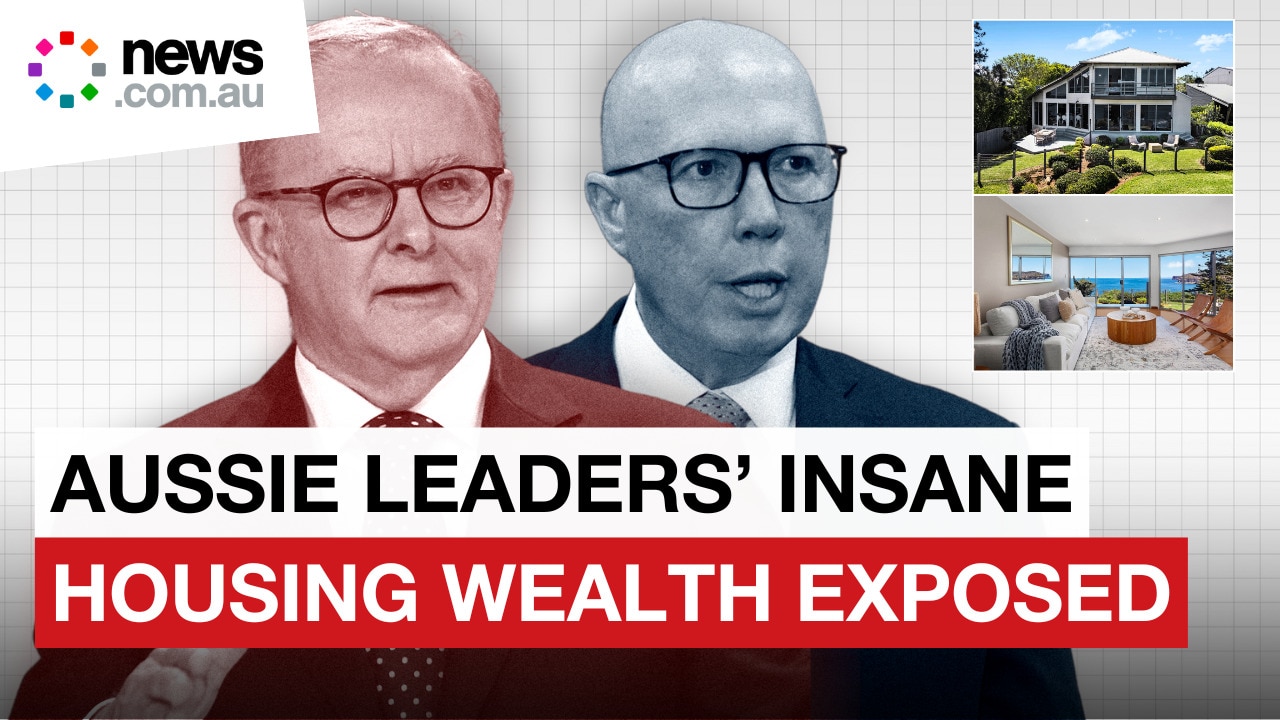
The election has just been officially called and Prime Minister Anthony Albanese has already been dealt some very bad news, weeks out from Aussies heading to the polls.
The fresh blow to Mr Albanese’s campaign, which has only today kicked off for a May 3 poll, follows news.com.au asking Australians one simple question: Who should be Australia’s next prime minister?
The question was asked as part of The Great Aussie Debate, a wide-ranging survey that will reveal what people really think about all the hot topics of 2025.
Over two weeks earlier this year, more than 54,000 Australians took our survey and, while the full results will be released once the federal election is done and dusted, we can now reveal how people feel heading into the campaign.
Of the total respondents, 62.72 per cent (or 34,156 people) said Opposition Leader Peter Dutton should be our next prime minister.
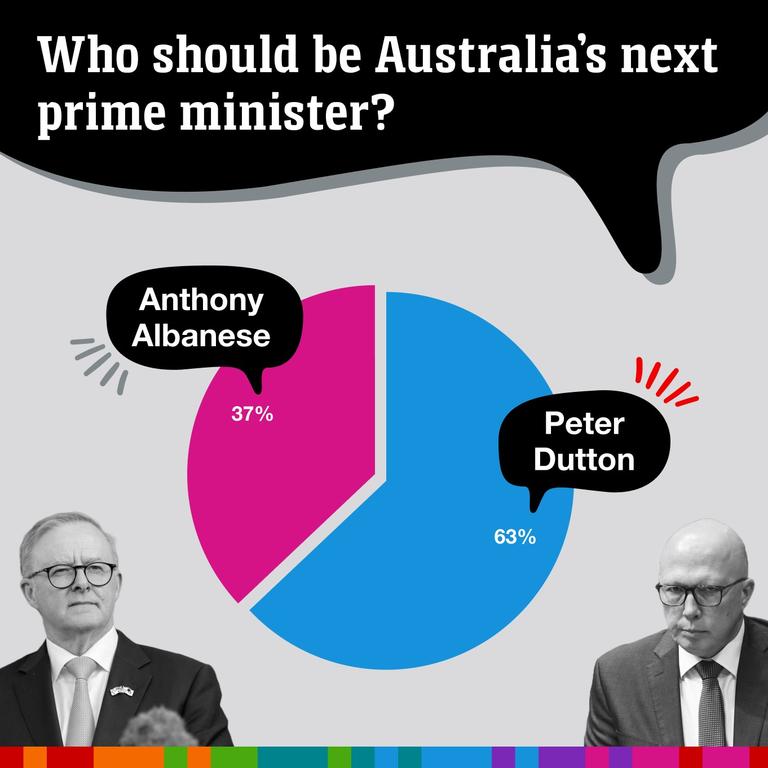
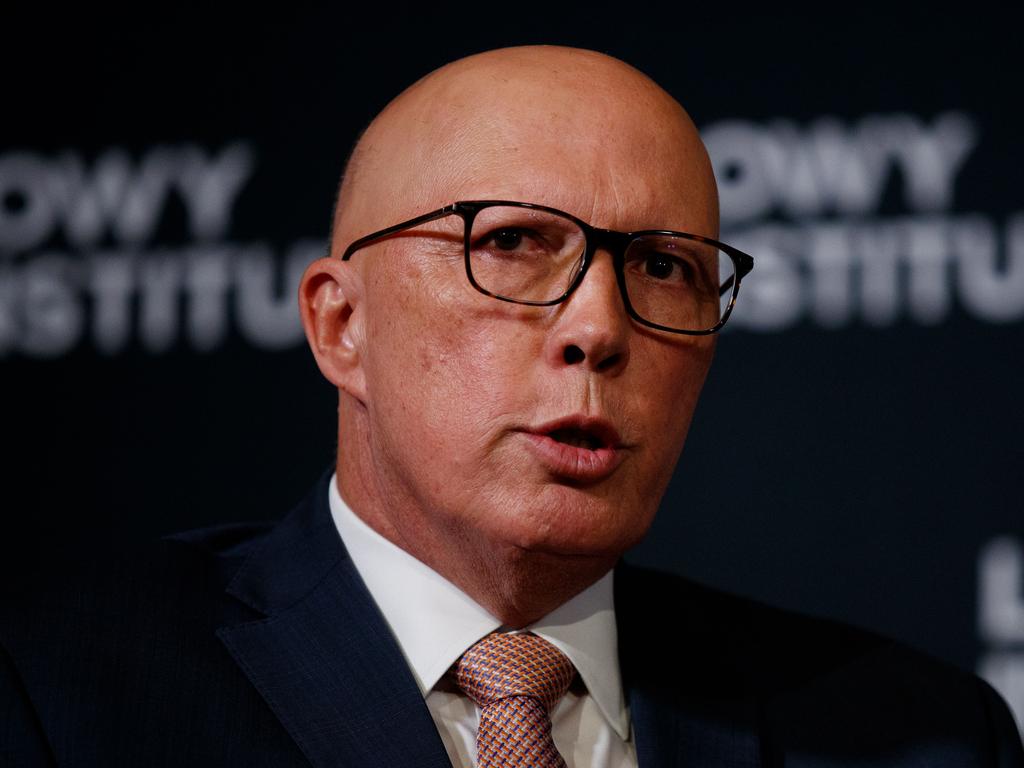
This means just 37.28 per cent of people think Mr Albanese should remain in the top job.
A further breakdown of the data shows even more concerning details for the current PM.
While support for Mr Dutton does increase among older age groups, young voters, who typically hold more left-leaning views than older generations, are also favouring the Liberal leader.
Of the 18-29 age group, 52.39 per cent of respondents said they wanted Mr Dutton to be the next PM while only 47.61 per cent favoured Mr Albanese.
However, this is a much closer split when compared to older generations. Of those aged over 70, 76.32 per cent cast their vote for the Opposition Leader in the survey, as did 69.52 per cent of those aged 60-69, and 66 per cent of people aged 50-59.
That preference drops slightly to 59.75 per cent for the 40-49 age group and again to 54.42 per cent for the 30-39 demographic.
This federal election will be the first where Gen Z and Millennial voters will outnumber Baby Boomers, and there have already been clear signs that both sides are trying to grab the attention of younger voters.
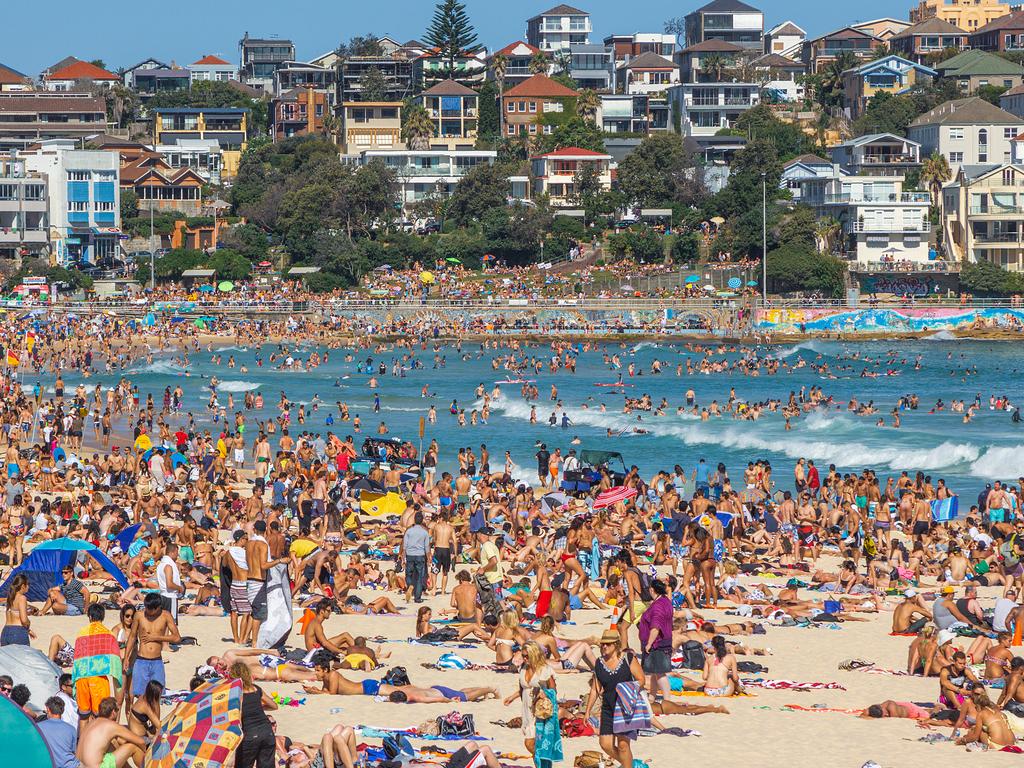
Both Mr Albanese and Mr Dutton have appeared on popular podcasts in recent months, a tactic we saw used throughout the US election, with Donald Trump appearing on The Joe Rogan Experience and Kamala Harris speaking with Alex Cooper on the Call Her Daddy podcast.
Among Mr Albanese’s most notable appearance was when he sat down with Australian media personality Abbie Chatfield for a long-form chat on her It’s A Lot podcast.
For Mr Dutton, his most talked about foray into the podcast world was his 90-minute conversation with entrepreneur and self-made millionaire Mark Bouris on his podcast Straight Talk.
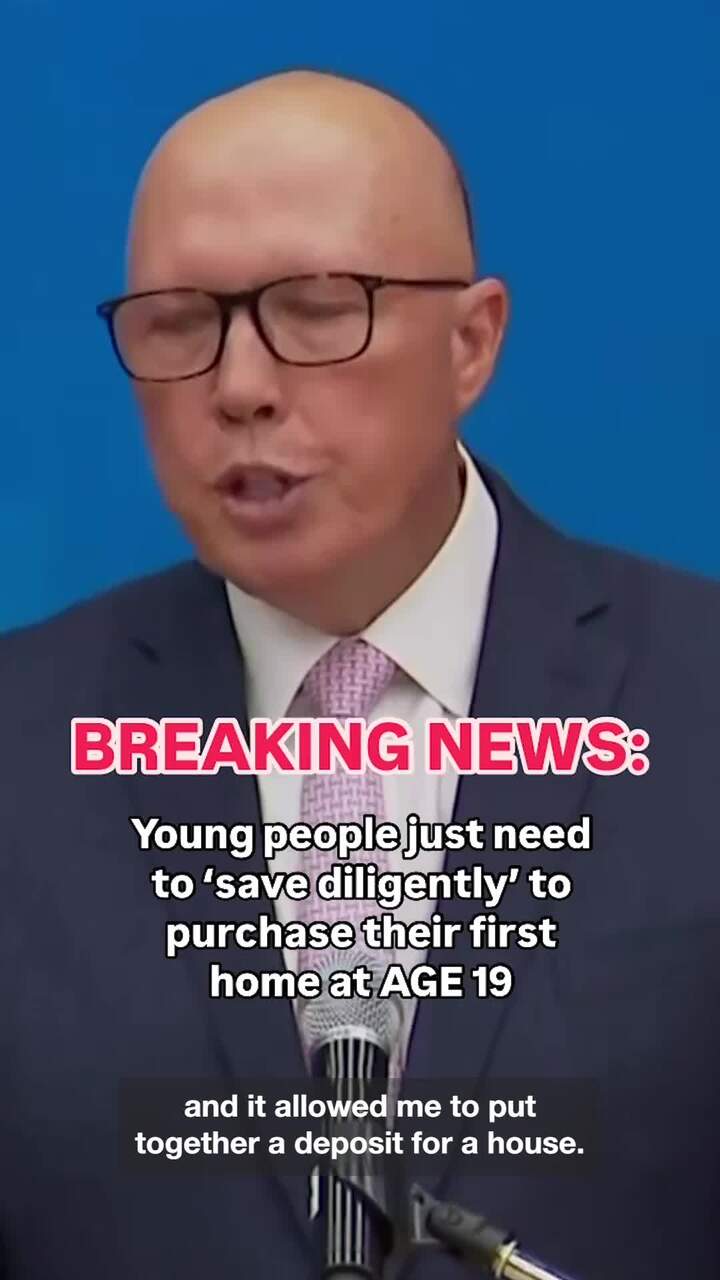
Through these interviews, it has been clear the politicians are trying to target very different parts of the youth voter demographic.
The majority of Ms Chatfield’s listeners are women and her social media content is skewed toward a younger female audience.
In the interview, Mr Albanese also spoke about Labor’s support for women’s health, including policies relating to endometriosis care, contraceptives and menopause.
In Mr Dutton’s interview with Mr Bouris, he clearly targeted a different audience.
He said that young men are fed up with being painted as “ogres” and are feeling “disenfranchised and ostracised” as a result.

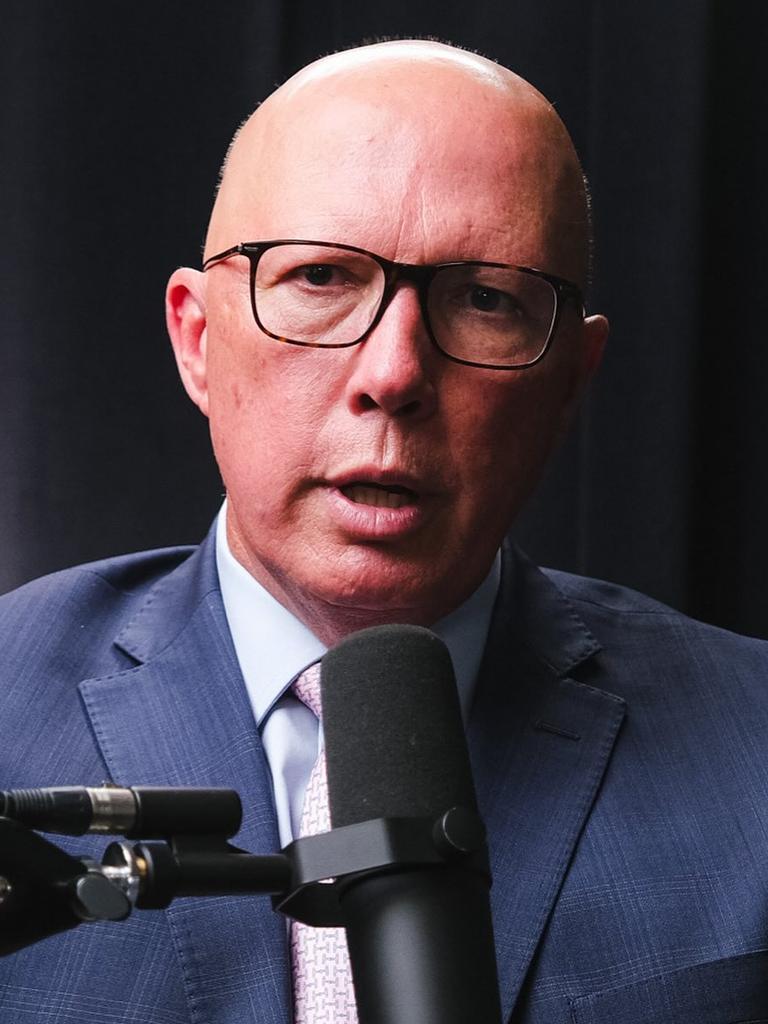
When we split the results from The Great Aussie Debate survey by gender, it is clear that Mr Dutton is more popular with men than with women.
Of those surveyed, 68.17 per cent of men said they would vote for Mr Dutton.
While the majority of women still favoured the Opposition Leader, the gap was significantly smaller, with 53.61 per cent compared to 46.39 per cent preferring Mr Albanese.
The only group where Mr Albanese was the preferred candidate was among non-binary respondents, with 59.47 per cent preferring the current PM and just 40.53 per cent wanting Mr Dutton to take the reins.
This is far from the first time the first time the gender divide between supporters for the two candidates has been highlighted.
Previously speaking to news.com.au, Dr Intifar Chowdhury, lecturer in Government at Flinders University, noted men, particularly between the ages of 18 and 34, were showing an increased preference towards Mr Dutton compared to women in the same age range.
She said this difference in opinion could result from a series of factors, including economic standing, education, whether they are from inner-city or remote areas, or whether they work a blue-collar or white-collar job.
These factors can push people toward what Dr Chowdhury labelled “anti-government rhetorics” and small pockets of “online battlegrounds where younger voters are relating to authoritarian and anti-feminist messaging where we’re seeing a starker rift between men and women”.
She said that while Gen Z and Millennials may seem to hold more progressive views than their older counterparts, there is still a sense of “political unpredictability”, which could see them end up being “powerbrokers or wildcards” of the next election.
“Although young people do have a progressive-leaning, they do not necessarily neatly align with either of the major parties,” Dr Chowdhury said.
“Younger people are more volatile voters compared to older people and this means that the way they vote might be quite sensitive to the election campaign.”
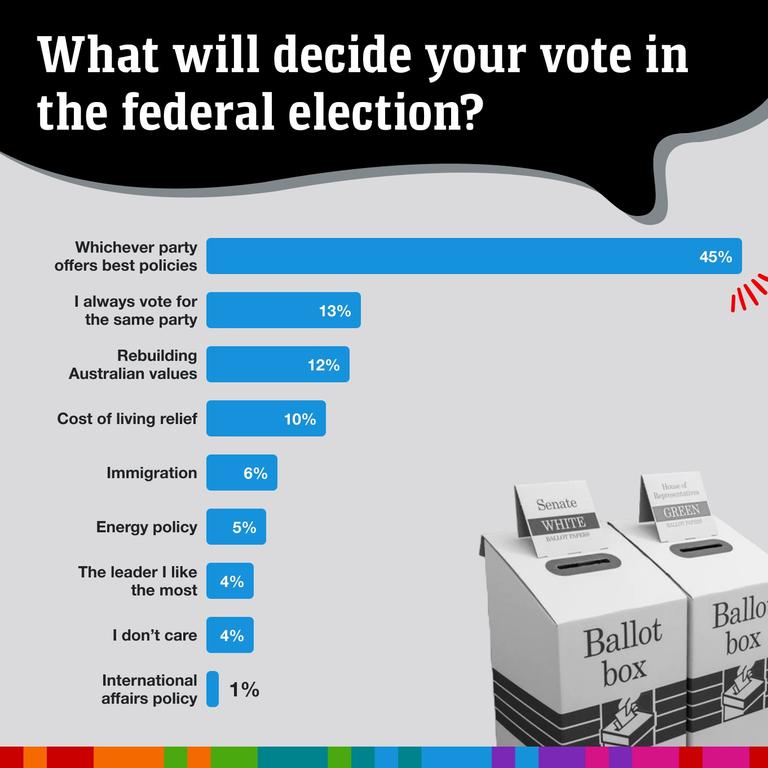
News.com.au also dug deeper into how Australian’s make their decision when it comes time to head to the polling booth, gaining key insight into the issues they care about.
The majority of respondents, 52 per cent, said they would vote for “whichever party offers the best policies for me and my family”.
The second most common response indicated that many Aussies they have already made up their mind well before an election, with almost 13 per cent always voting for the same party.
This was followed by 12.2 per cent of people who said a party focused on “rebuilding Australian values” was important to them, while 11.2 per cent placed the most importance on relief from the cost of living.
One of the factors least likely to decide a person’s vote related to a party’s international affairs policy, with just 0.83 per cent choosing this option, indicating Aussies are more concerned about domestic issues heading into the election.
Just four per cent of respondents said they would be voting for the “leader I like the most”, showing that, while preference for a leader may be a consideration, it has far less of an impact than policy or economic concerns.
The full results of news.com.au’s Great Aussie Debate survey will be published in the coming weeks, after the federal election.
Read related topics:Anthony Albanese




